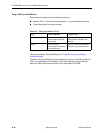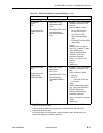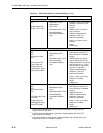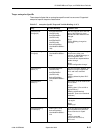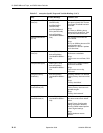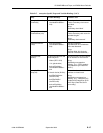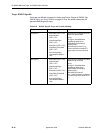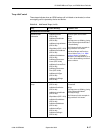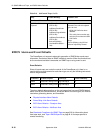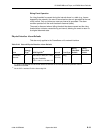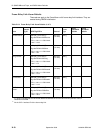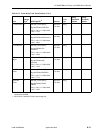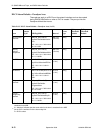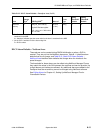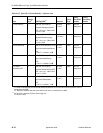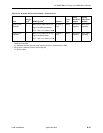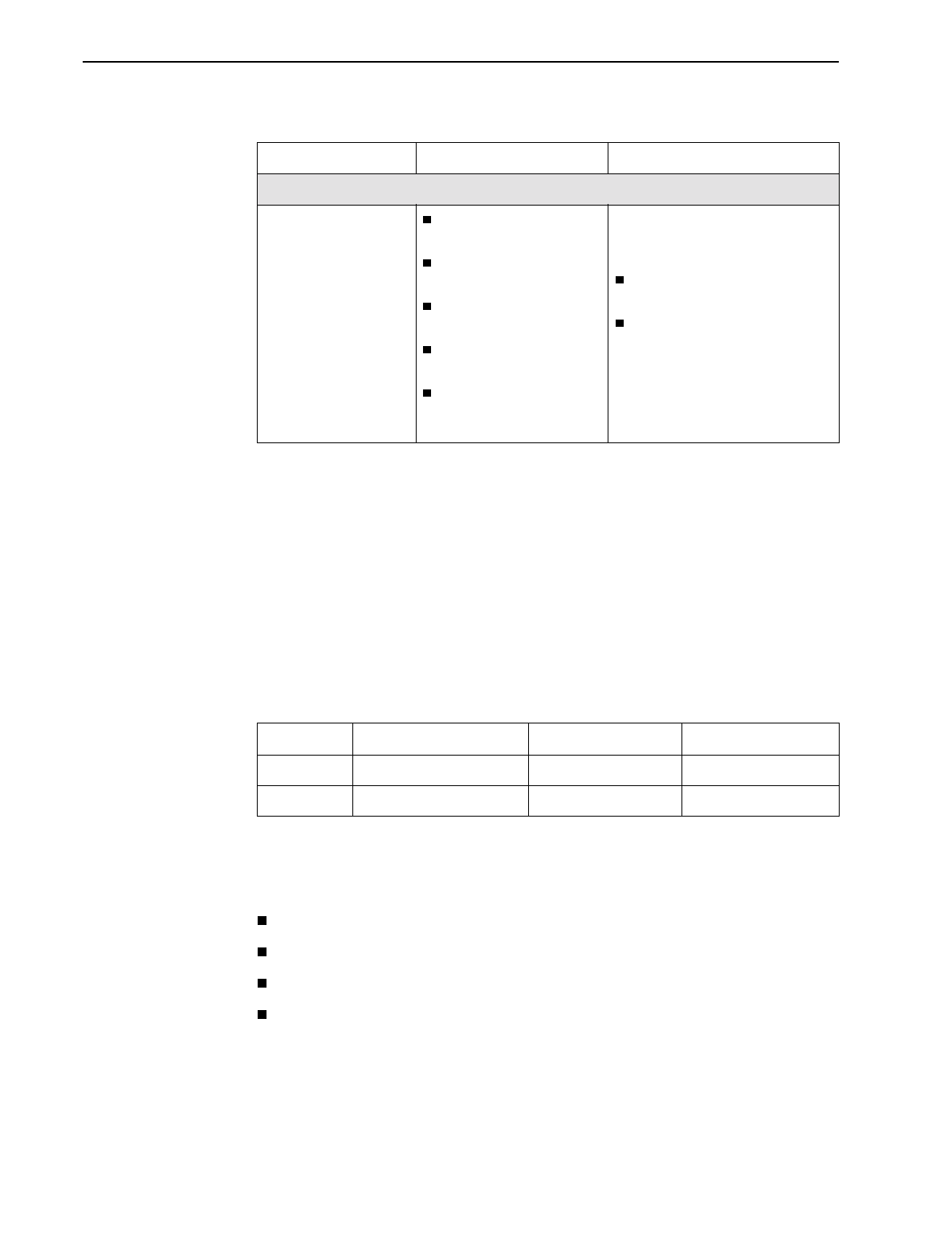
B. SNMP MIBs and Traps, and RMON Alarm Defaults
B-18
September 2002 9128-A2-GB20-80
RMON Alarm and Event Defaults
The FrameSaver unit supports automatic generation of RMON alarm and event
information. Each alarm sets an SNMP variable to monitor. When the threshold set
for the monitored variable is exceeded, an SNMP trap or a log event is sent.
Event Defaults
Since all events sent are under the control of the FrameSaver unit, there is no
need to define multiple events for each alarm type, so only the following two events
need to be generated:
The alarm default tables starting on the next page show how each RMON default
alarm is set by the FrameSaver unit, shows the alarm and event types, the interval
used when generating alarms, and thresholds.
Physical Interface Alarm Defaults
Frame Relay Link Alarm Defaults
DLCI Alarm Defaults – Paradyne Area
DLCI Alarm Defaults – NetScout Area
See
Standards Compliance for SNMP Traps
on page B-8 for information about
how traps work, and
Traps: RMON-Specific
on page B-16 for traps specific to
remote monitoring.
Dial Control Extension MIB
dialCtlPeerCall-
Rejected
callHistoryPeerId
(RFC 2128)
callHistoryPeerIfIndex
(RFC 2128)
callHistoryLogicalIfIndex
(RFC 2128)
callHistoryPeerAddress
(RFC 2128)
devLastTrapString
(devHealthAndStatus.-
mib)
A peer-to-peer call was not
successful; the call was rejected
by the far end.
ISDN Call Profile has been
disabled.
This unit’s phone number was
not in the far end device’s ISDN
Call Profile.
String:
‘Call on $ifString using B-Chnl
$channel rejected by remote.’
Table B-9. dialControl Traps (2 of 2)
Trap Variable-Bindings Possible Cause
eventIndex eventDescription eventType eventCommunity
65533 Default SLV Rising Event log-and-trap(4) 0
65534 Default SLV Falling Event log-and-trap(4) 0



